Sales Technology: Why Your Team Really Needs It

Since the onset of the COVID-19 pandemic, there has been an unprecedented shift to digital which has resulted in almost 90% of B2B sales now happening digitally. This shift has thus changed the way businesses interact with potential buyers and partners making the cruciality of digital sales technologies undeniable.
Because of this technological and digital transformation in the world of sales and marketing, it is fundamentally important for selling strategies to reflect this change. In order to generate the most effective remote sales relationships, it is essential to comprehend exactly what clients are dealing with. Demonstrating this comprehension by providing tailored solutions can establish trust and credibility, which then fosters prosperous partnerships in a long-term commitment.
This is where digital technologies come into play.
Sales technologies are the digital tools salespeople use to increase sales by boosting lead generation, customer satisfaction and retention, improving sales processes and increasing closing rates.
Utilizing sales technology tools, companies must adapt their approach accordingly in order to be successful when selling to other businesses. As such, it is important to understand some best practices and sales strategies that will help ensure you achieve maximum results from your digital B2B sales initiatives.
Here are some tips to help you succeed in this new business world.
CRM Technology
CRM, or customer relationship management, technology has blown up in popularity and proven effective in recent years. As defined by the largest CRM company to date, Salesforce, the goal of CRM is to improve business relationships to grow your business.
Recent CRM platforms offer a variety of features to help businesses manage customer relationships. As a technology used by businesses to manage their interactions with customers and potential customers, CRM solutions help companies track all communications, nurture relationships, and gain insights into customer behavior.
CRM software can also be used to store customer data, automate marketing tasks, and provide customer service. With the help of CRM systems, businesses can better understand their customers' needs and create personalized experiences that will keep them coming back.
Three specific features of modern CRM platforms include workflow automation, customization, and third-party integration.
Workflow automation allows businesses to streamline processes and automate tasks such as sending emails or updating customer records. Customization allows businesses to tailor the CRM platform to their specific needs, while third-party integration enables businesses to connect their CRM platform with other applications and services.
Combined these features prove to be extremely effective B2B tools to help businesses improve efficiency, better understand their customers' needs, and provide better customer service. The picture below is a nice summary of all the features and benefits of utilizing sales tools like CRM technology.
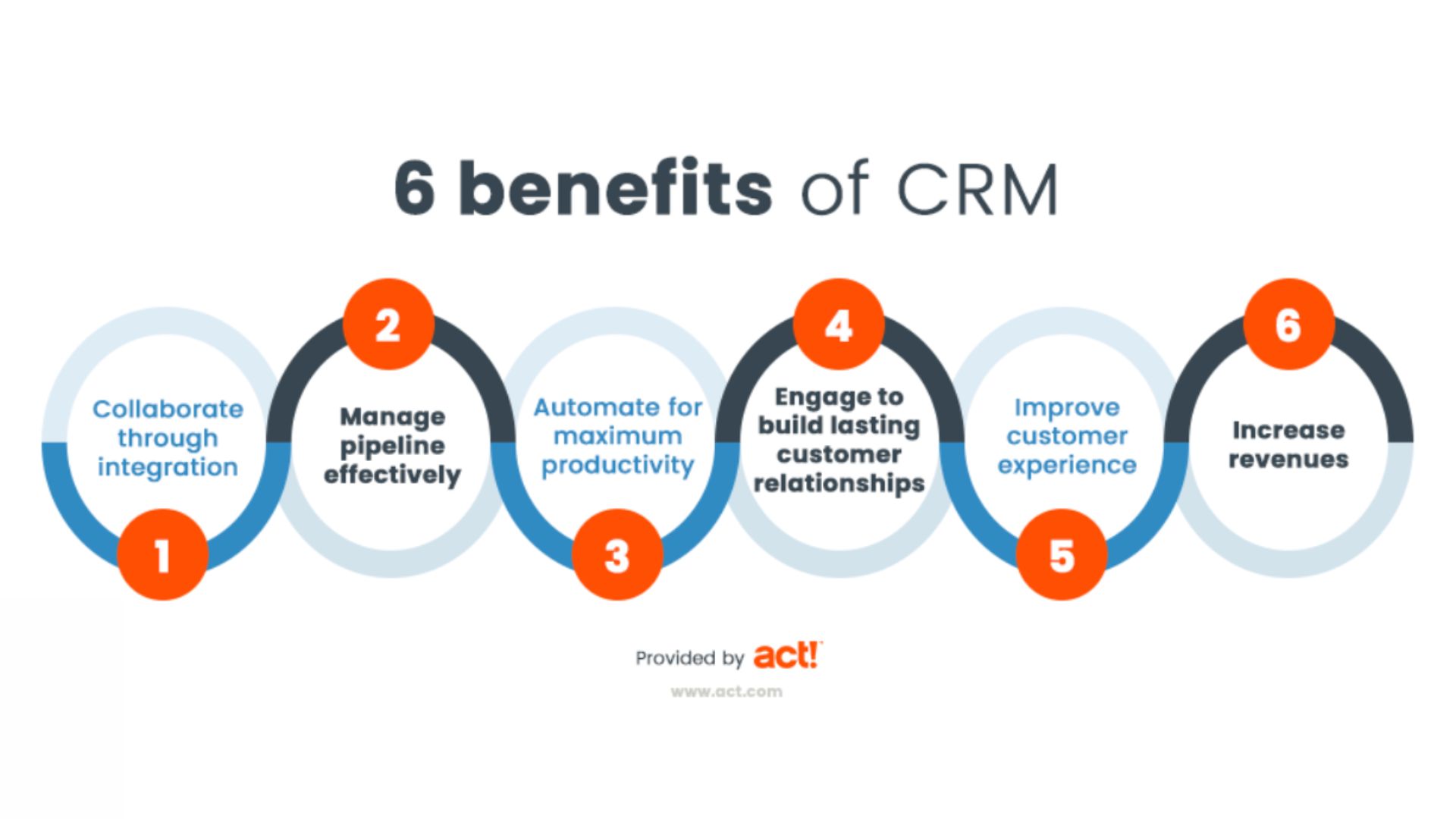
Why is CRM Technology Important
So, now that we know all of the unique features CRM technology can offer to businesses, let’s discuss precisely why utilizing these technologies is so fundamental to your company.
Firstly, According to Salesforce, businesses that use CRM technology are 51% more likely to exceed their sales quotas. Prospects who have even just one bad experience with a company are much less likely to convert to customers. But with CRM technology, maintaining communication with prospects becomes infinitely easier to manage, reducing the number of poor experiences prospective customers have with your company.
CRM technology also enables companies to automate processes such as sales tracking, marketing campaigns, and customer service. Automation helps businesses save time and money by streamlining operations and eliminating manual tasks, such as phone calls and emails.
Because of all of the proven benefits of sales technology tools like CRM, it is not surprising that 91% of companies with over 10 employees are using CRM. Managing customer relationships effectively can help make all sales opportunities productive for you and valuable for your customer.
Marketing Automation Solutions
We know, we know. The title of this blog is Technologies for Sales Teams.
So, why then are we talking about marketing?
Because marketing and sales go hand in hand. Marketing teams focus on generating customer interest in products or services, while sales focus on direct sales and bringing business transactions to a close. Marketing generates leads, sales teams convert those leads into customers, and together, marketing and sales help your company thrive.
Marketing automation solutions use software, and sometimes artificial intelligence as well, to make monotonous and tedious tasks automated. These technology stacks allow businesses to streamline their marketing and sales efforts, tailor specific campaigns and content towards a wide range of audiences depending on their engagement level, and, like with CRM technologies, personalize workflows.
How Marketing Automation Tools Can Help Your Business
As expertly articulated by Hubspot,
“Each of your prospects’ actions is an added data point for your marketing strategy, telling you what customers are looking for, immediately at the moment. As helpful as this information is, manually tracking these behaviors is impossible.
However, with marketing automation software, businesses can use these inputs across multiple channels to deeply understand their customers’ needs and deliver the right content at the right time.”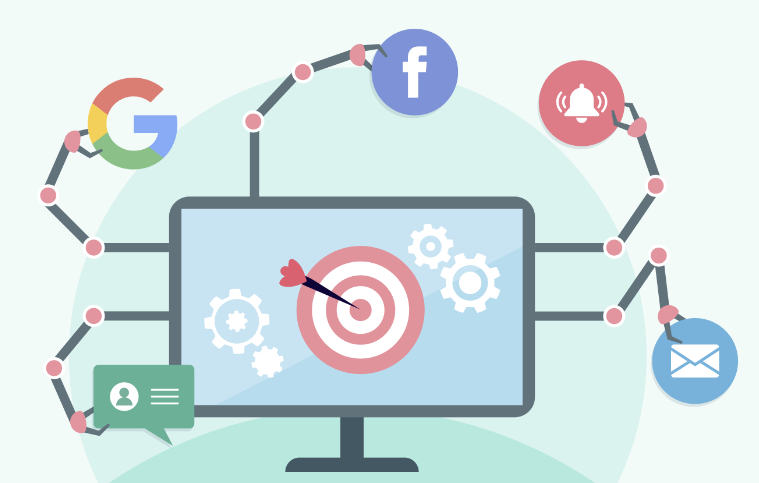
When marketing automation is defined, the emphasis is usually on how much it benefits sales and marketing and how it contributes to the overall success of the business. Similarly with CRM technology, sales technologies like marketing automation help enhance the customers' experience and boost customer satisfaction and loyalty, thus driving the LTV (lifetime value) of each customer.
This tool can also help bring in passive sales by automating the marketing process, saving sales and marketing teams time, and increasing at the same time.
All in all, marketing automation is a powerful tool that allows companies to build lasting relationships with their customers by using marketing and sales technology. It offers the opportunity for businesses to deliver tailored solutions and insights based on collected data, enabling them to tackle customer pain points in an efficient and personalized way.
Video Conferencing Tools
Before the pandemic, utilizing video as a b2b sales tool was a foreign concept. Now, this idea has become normalized.
And while there is a wide range of video technologies available that help contributes to an effective sales strategy, today, we will be looking at video conferencing tools specifically.
In an experiment published by the Journal of Experimental Social Psychology, it was found that face-to-face requests were 34 times more likely to produce positive responses than emails. Why? Because humans feel more comfortable making weighty decisions when talking to another human rather than communicating with a faceless emailer.
One of the most important advantages of utilizing video as a sales enablement tool is that videos have the ability to create personal connections with potential and existing customers in a way that other technologies simply cannot achieve. This personal connection can do wonders for your company's overall sales performance.
Using video tools as part of your sales process can be anything from turning on your camera during a sales call to humanize the interaction, sending a live-action introduction video with video messaging tools like Dubb (below), Vidyard, or Loom, or even providing your prospects with product explainer videos.
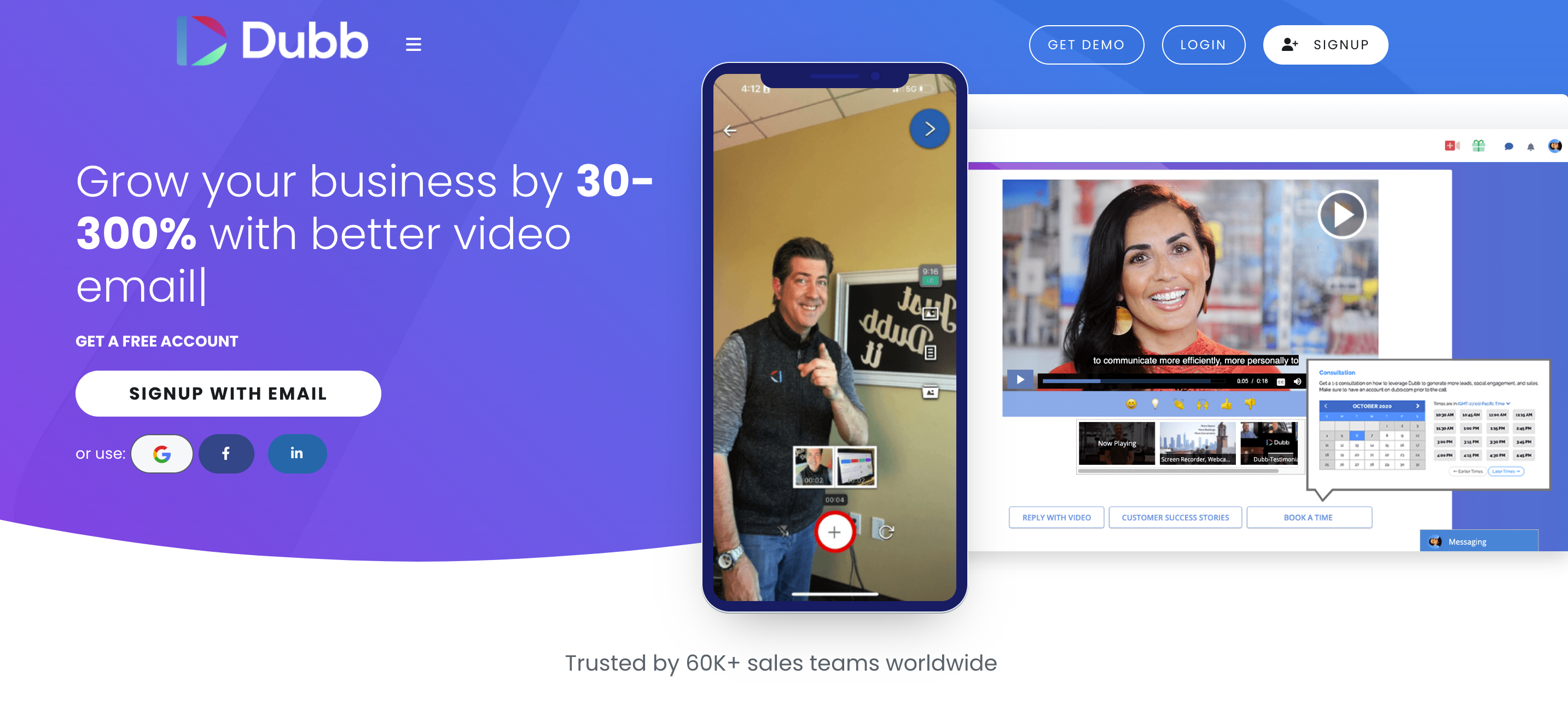
The 3 Main Benefits of Using Videos as Sales Tools
The 3 main benefits of using videos as sales tools are very straightforward.
Personalization
Videos provide your customers with a more personal and human sales process, helping break down barriers and leading them to trust you and your company more. This in turn makes prospects feel more comfortable and receptive to your products and services, thus increasing conversion rates.
Time and Efficiency
Videos help with time management. For salespeople whose lives are often very busy with calls and customer interactions, videos can be an extremely effective tool to optimize virtual conversations. With videos, salespeople can provide their customers with engaging presentations, product demonstrations, and more without having to have face-to-face meetings with each member of their audience.
Cost Reduction
Videos give salespeople access to international networks, allowing them to reach a greater market with no extra cost involved. These sales tools can also allow salespeople and teams to meet with their customers from the comfort of their homes, eliminating travel time and expenses that would otherwise be present.
Data Analytics Platforms
Understanding data is fundamental to the success of your business.
Think about your social media page:
- How many people like your posts?
- How many followers are you gaining per month?
- Which types of content perform the best?
Or think about your company website:
- What is the click-through rate of the main CTA buttons on your homepage?
- Which pages are getting the most views
- Are visitors viewing your website on their computer or their phone?
Understanding the answers to these questions equates to understanding data.
Data analytics platforms are becoming increasingly important in the modern world. With the amount of data being generated every day, businesses need to find ways to make sense of it all both in real time and over the course of several weeks and months. Data analytics platforms provide a way for businesses to analyze and visualize their data in order to gain insights and make smarter, more informed decisions.
These platforms can be used for a variety of purposes, from predicting customer behavior to optimizing marketing campaigns. By understanding their data and what it tells them, companies can create better strategies, target the right customers, increase profits, and gain a competitive advantage over their competitors. All of these things are essential for long-term success in today's market.
Primary Data Analytics Applications for Businesses
As defined by an article from Master’s in Data Science, there are four primary types of data analytics:
- Descriptive Analytics: answers questions about what happened.
- Diagnostic Analytics: answers questions about why things happened the way they happened.
- Predictive Analytics: answers questions about what will happen in the future.
- Prescriptive Analytics: answers questions about what should be done.
Combined, these types of analytics can produce a substantial amount of data, but with data analytics platforms that help streamline and define the data, businesses can obtain a much more accurate depiction of their company, their customers, and any other necessary information.
Sales Enablement Software
Sales enablement, as defined by Hubspot, is the process of providing your business’s sales team with the resources they need to close more deals.
This could look like anything from providing content, tools, knowledge, or information that generate more effective sales strategies and more interactive sales experiences for your customers.
Sales enablement software is an all-in-one solution designed to help sales teams increase their efficiency and performance. It provides the necessary tools and data that sales teams need to ensure they are properly targeting the right customers, tracking leads, closing deals quickly, and optimizing processes for maximum profitability
How Sales Enablement Software Maximizes Sales Results
Sales enablement software is essential for any business looking to maximize its sales results. By using this type of software, businesses can provide their sales team with the right tools and information they need to close deals more quickly and efficiently.
Sales enablement software helps organizations streamline the process of prospecting for new customers, tracking leads, identifying hot leads, and converting them into paying customers. This technology also allows businesses to measure performance metrics such as conversion rates and customer lifetime value in order to further optimize sales processes.
Ultimately, sales enablement software helps businesses increase revenue by providing a comprehensive system that makes selling easier, faster, and more profitable.
What Are the Most Popular Sales Technologies
As discussed the five most popular (and most effective) marketing and sales technologies are, CRM technology, marketing automation, video conferencing, data analytics platforms, and sales enablement software.
Here are some examples of each along with the unique features that the companies provide.
CRM Technology Examples
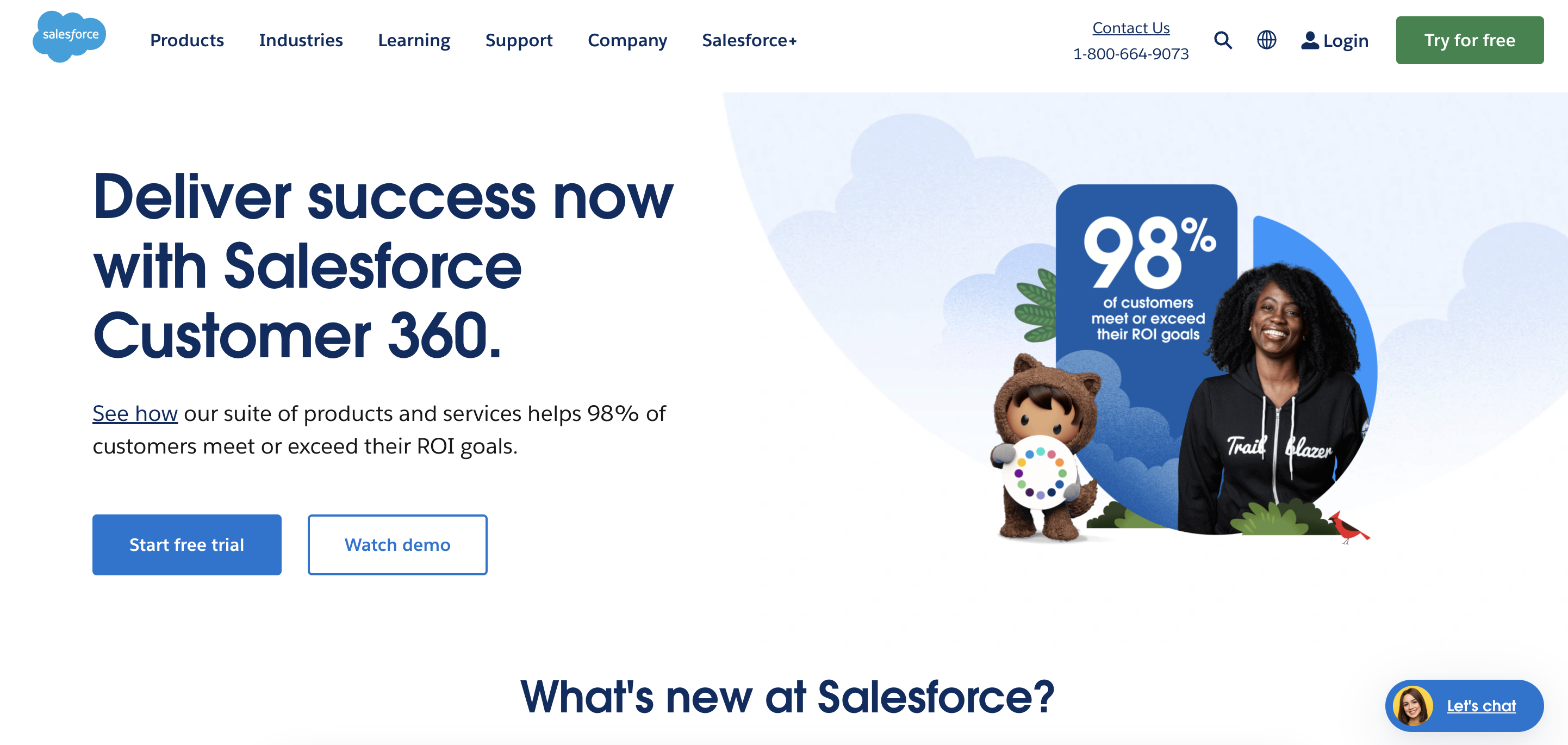
Salesforce is the company that first brought the importance of CRM technology to the limelight. It has become an incredible tool for sales managers and customer success representatives alike by unifying marketing, sales, service, and more. It also allows for the personalization of every customer journey with its signature feature, Customer 360, which brings customers and companies together and boosts sales performance.
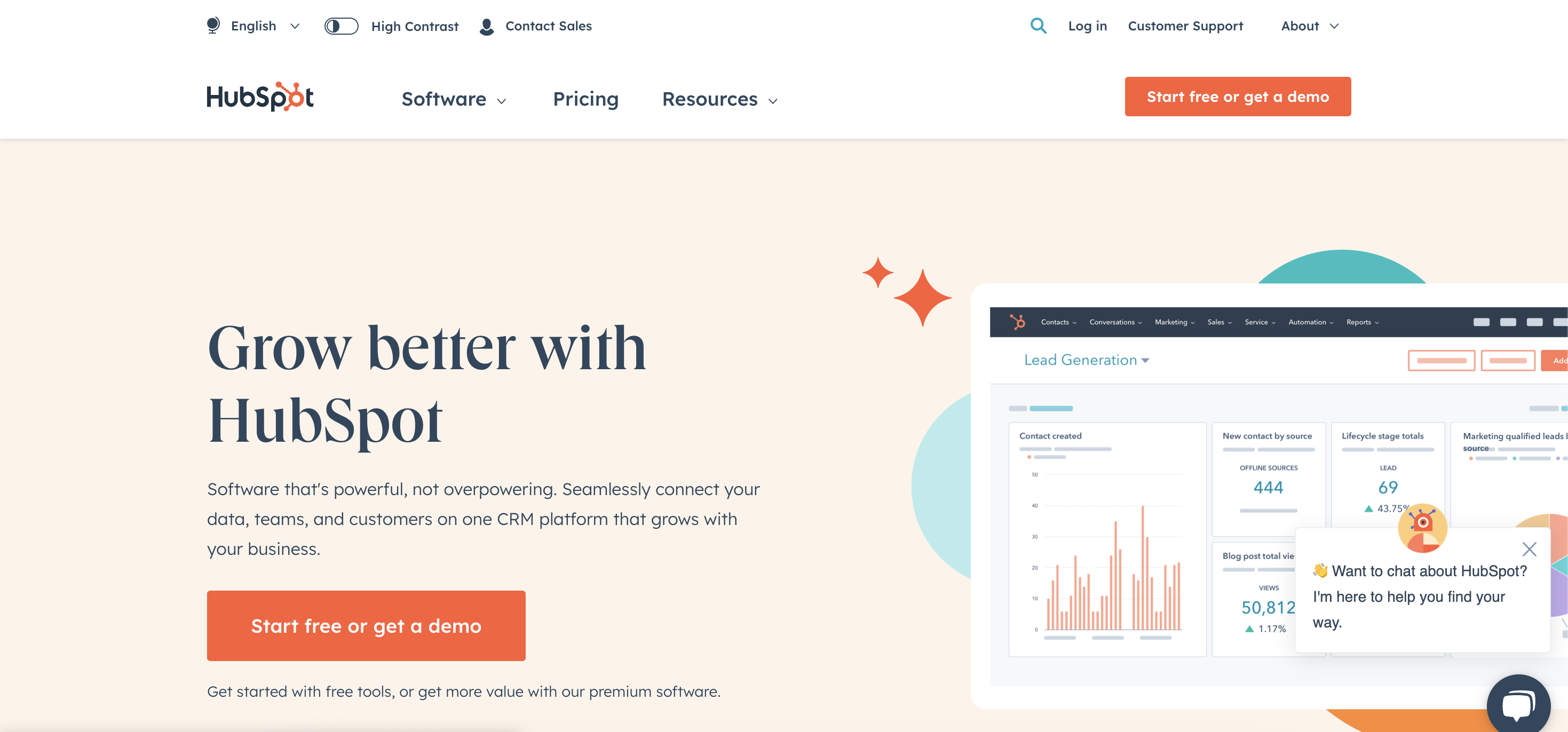
Hubspot is another CRM technology that contains a wide range of features including integrations, live chats, and email tracking. These features create an incredible tool for companies to manage and communicate with their customers. And paired with an extensive pool of resources, Hubspot helps companies of all sizes drastically increase their sales effectiveness.
Example of Marketing Automation
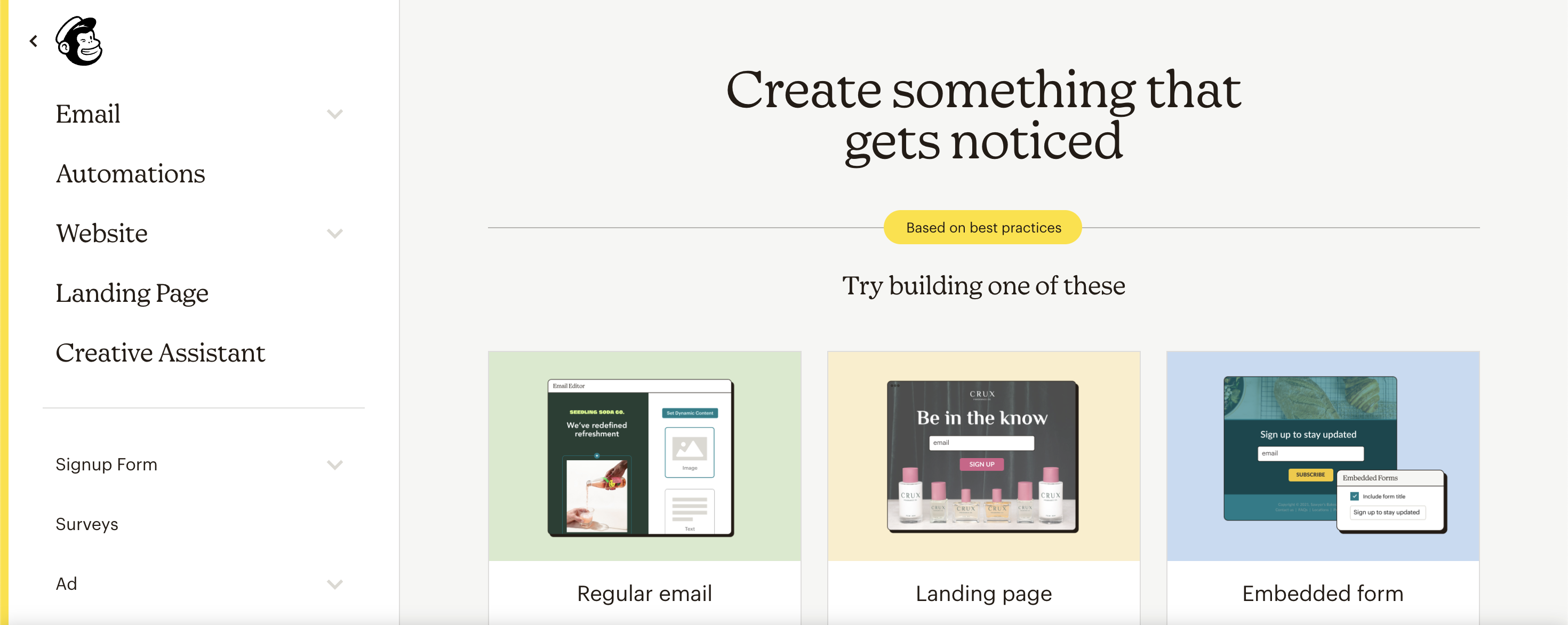
Mailchimp offers automated email marketing to engage prospects without hassle. While marketing automation solutions can sometimes be just a subset of CRM technologies, Mailchimp is automation software that has exploded in acclaim in recent years. Mailchimp is also a great example of effective self-service and personalization in action.
Video Conferencing Tools

Google Meet is an excellent video conferencing tool because it seamlessly integrates with your Google Calendar, Drive, and whole Google Suite. Like most other video conferencing tools of today, Google Meet contains several interactive features, such as screen sharing, meeting recording, and background noise cancellation (my personal favorite). For remote teams that do not use Google Suite though, Microsoft Teams and Zoom are also quality alternatives.
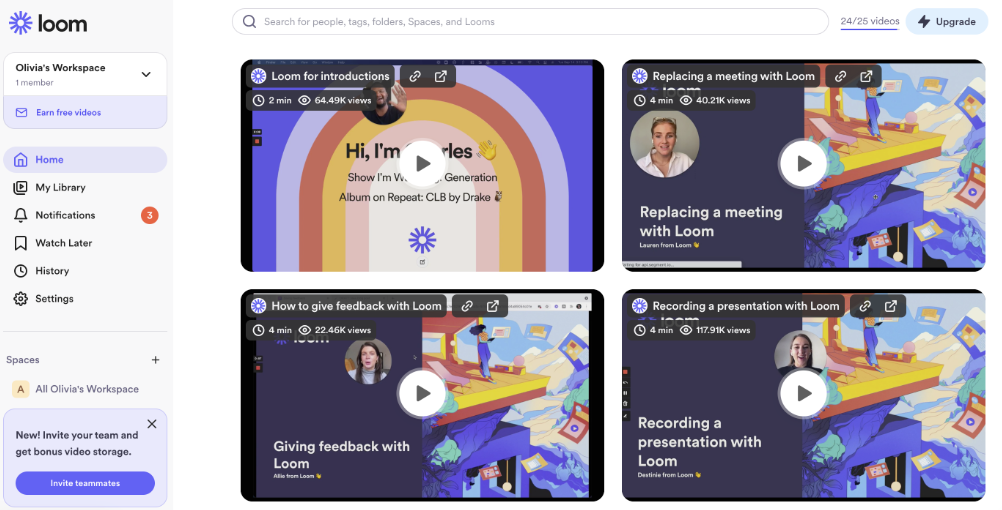
Loom is a video messaging platform that allows users to record their screens and share their thoughts through async videos. Along with Dubb and Vidyard (mentioned in the section Video Conferencing Tools), Loom is incredibly useful for boosting engagement through video-based communication. While Loom is not a video conferencing tool, the video messaging services that it provides are still extremely beneficial for businesses.
Data Analytics Platform

Microsoft Power BI is a powerful tool that allows businesses to process their data in intricate and compelling visualizations. Microsoft Power BI helps its users build reports and dashboards of the data collected easing the reading, sharing, and understanding of information. This tool is also extremely useful because it has a mobile application version as well as a traditional desktop application, allowing users to analyze data wherever they are.
Example of Sales Enablement
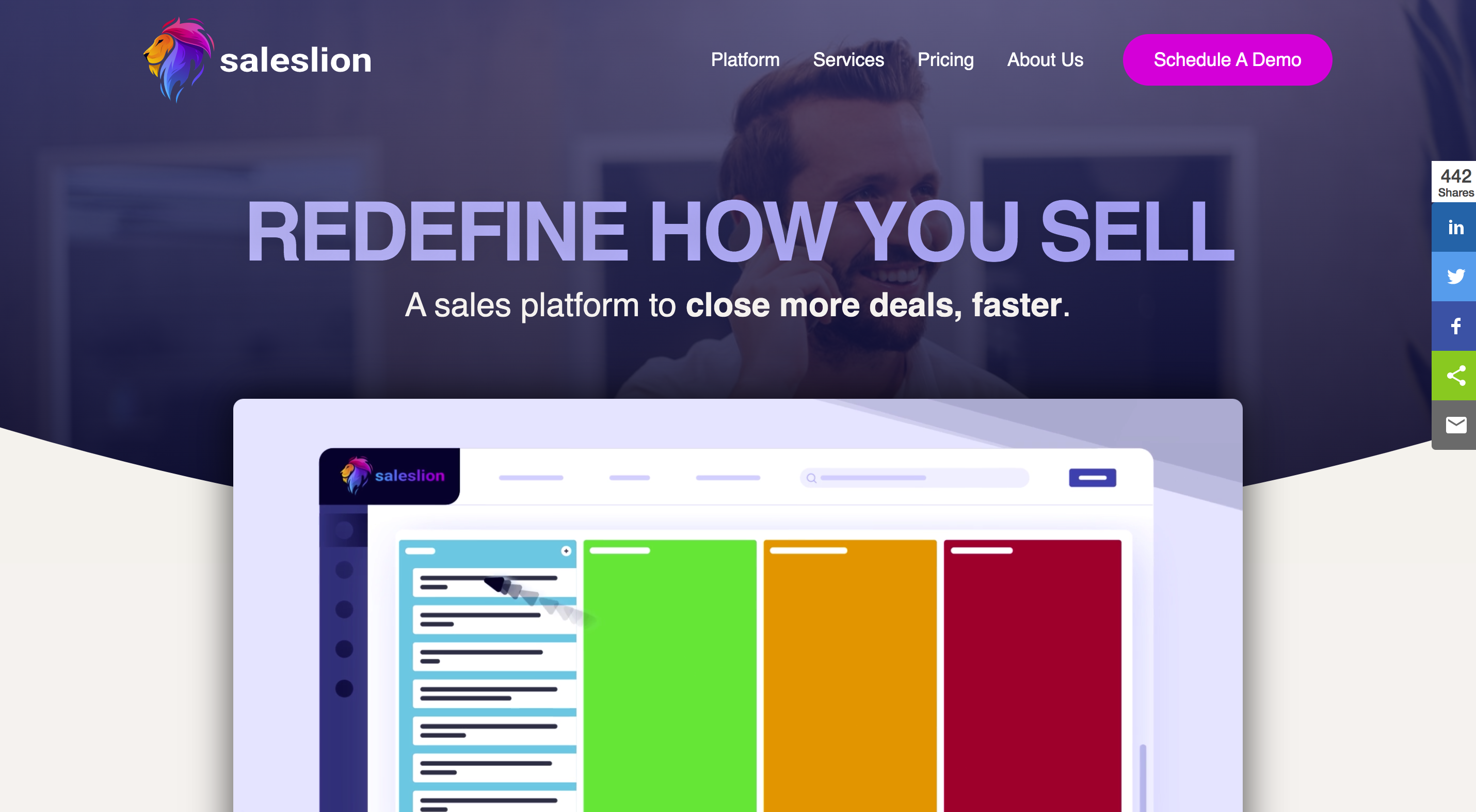
Saleslion offers a unique form of sales enablement. By combining sales enablement software with sales consulting, Saleslion helps enterprise companies not only convert more customers but also develop systems to enhance their entire sales experience. Focusing on everything from more effective discovery phases to scaling the closing process, Saleslion takes sales enablement to the next level.
Key Takeaways
Technology is essential for any sales team to be successful in today's world. Sales technology stacks such as automation, analytics, and customer relationship management help sales teams better understand their customers and target them more accurately.
With the help of sales enablement technology, sales teams can quickly identify hot leads, track the progress of current deals and optimize processes for maximum efficiency. These B2B sales tools also enable sales teams to gain insights into customer behavior, predict buying trends, and develop personalized marketing campaigns for better engagement. By leveraging technology in their operations, businesses can maximize their potential for success and build a long-term competitive advantage.
Reach out to us today if you are interested in scaling your sales opportunities with high-quality sales technology.
Ready to reinvent your sales process and tools?
One quick call and we'll share our approach - no pressure.
Schedule your demo